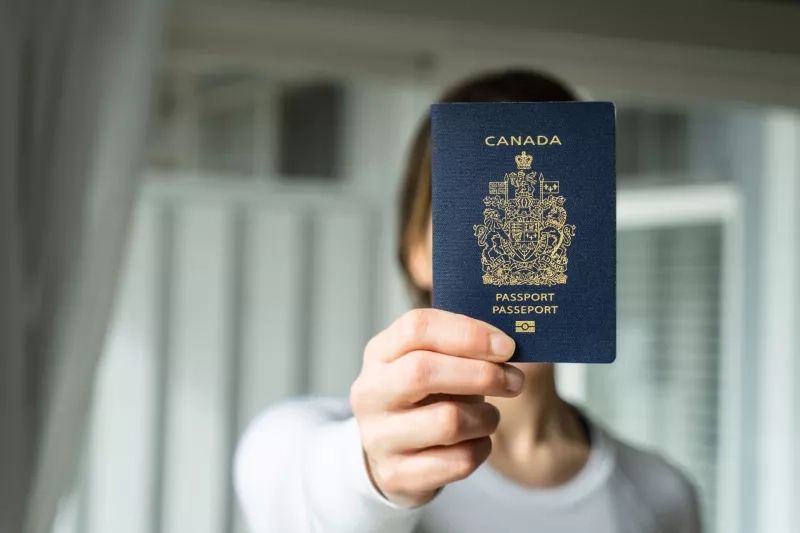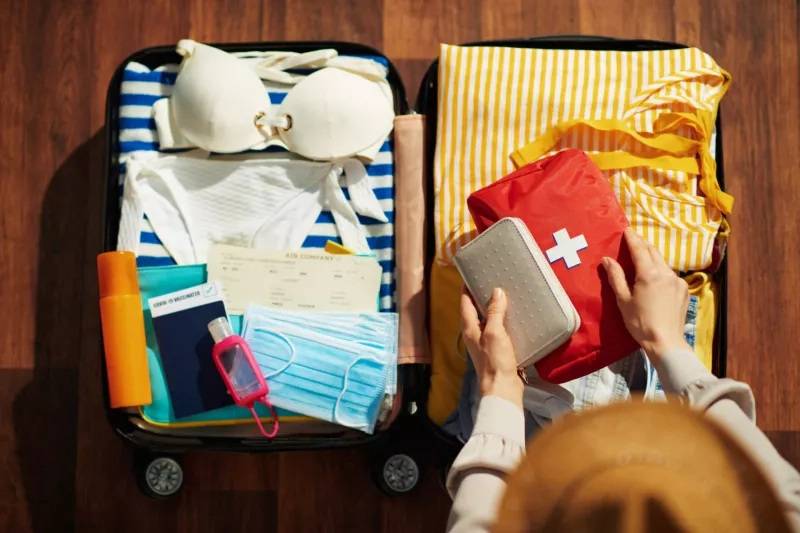
How to prepare for a long trip this winter
3 Minute Read
Winter is a time of cozy sweaters, hot chocolate, and the holiday season. But for many, it also means extended getaways, often an escape to warmer destinations. Before embarking on your vacation, there's much to consider when planning a trip from booking your tickets to getting insurance.
Here are our expert tips to help you prepare for your winter getaway.
Pre-travel checklist items not to forget

While packing, it is always important to check your pre-travel checklist to ensure you have everything you need, as some items often get overlooked. The first thing you should check is your passport's validity. Many countries require your passport to be valid for at least six months after your trip's end date. If you do need to renew your passport, CAA Members receive exclusive discounts on passport photos.
If you're leaving the country, register as a Canadian travelling abroad before you depart so you'll be kept in the loop in case the unexpected happens, like a natural disaster or civil unrest. You can do so for free on the Government of Canada's website.
Make sure you get travel insurance
You'll want to get trip cancellation and trip interruption insurance when you put down a deposit for your trip. Trip cancellation is for before you leave and protects you if your flight is cancelled, you or your travelling companion falls ill, or there's inclement weather.
While trip interruption insurance is for after you've already left. This coverage will help you complete your trip or return home if you miss a connecting flight or need to return home to address an emergency.
For the best coverage, you can bundle these two insurance plans with emergency medical, travel accident, and baggage loss insurance with a CAA Vacation Package plan.
Must pack items for a travel health kit

Snowbirds heading for extended winter getaways should be prepared for unexpected health emergencies, as medical supplies may not be easily accessible. A travel health kit should include basic first-aid supplies, such as medication for headaches, pain, fever, and strains, as well as adhesive bandages and blister pads. If you are departing for a cruise, consider bringing motion sickness treatment.
You should carry prescription medicines to manage pre-existing conditions and pack extra medication in case your trip is extended due to flight delays or cancellations. Also, always carry proof of health insurance coverage in case you get sick or injured while travelling.
Pro-packing tips to cut down on how much luggage you need to bring
Whether you're gone for a week or a weekend, bringing your entire closet is tempting. Start by being realistic and only packing what you need.
If you're travelling with only a carry-on bag, don't fill it with most of your wardrobe. Not only will it be heavy to carry around, but it will leave you no space to store souvenirs you purchase on your trip. Fill in nooks and crannies to make the most of the limited packing space. For example, you can store items inside your shoes or other small pockets in your bag.
When packing, whether in a large suitcase or a carry-on bag, pack clothes that can create multiple outfits to maximize your options. You'll also want to check your airline's size and weight restrictions to avoid any surprises or additional fees. Remember that the Canadian Air Transport Security Authority has strict rules about what you can and cannot bring in your carry-on, especially regarding liquids and gels.
How to keep your house secure while you're gone
One sure sign that no one is home is piling up mail. Before you leave, ask a friend, family member or neighbour to drop by your house regularly to pick up mail or flyers. Another great way to make it seem like someone is home is to automate your home with smart technology. You can set a schedule for your blinds to open and lights to turn on. If you will be away from your home for an extended period, inform your insurer.
Remember to turn off the water when travelling in the winter. It is the best way to avoid a burst pipe or a plumbing failure. Also, remember to set the thermostat high enough to keep the water pipes from freezing.
Get ready for your winter getaway
Contact a CAA Travel Consultant to start planning your trip. You can book an appointment online to ask them your questions about travel insurance and get the best coverage for your budget.
CAA Travel Insurance is underwritten by Orion Travel Insurance Company, a CAA Company. Certain exclusions, limitations and restrictions apply. Subject to change without notice. A Medical Questionnaire is required if you are 60 years of age and older. Quotes are valid for 30 days.
®CAA trademarks are owned by, and use is authorized by, the Canadian Automobile Association.




